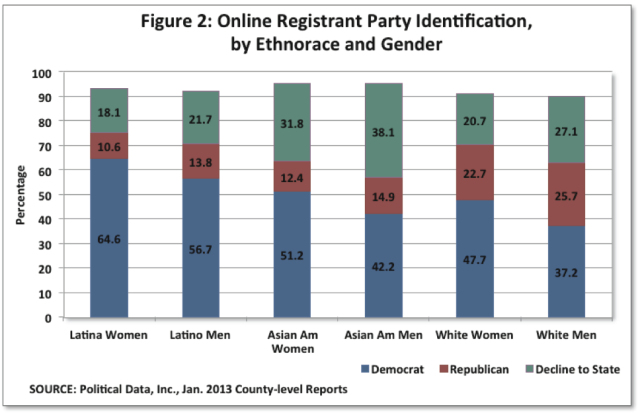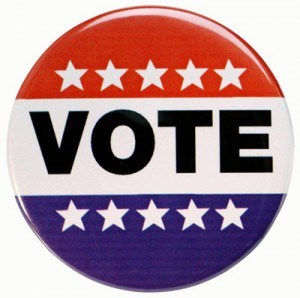There’s no reason to be entirely glum about the Supreme Court’s decision to strike down provisions of the Voting Rights Act: the growing accessibility of online voting and registration spells good things for traditionally marginalized groups. As I’ve written about before, California’s experiment in online voter registration had (surprisingly) the biggest impact on Latino voters. And the eventual arrival of online voting itself could herald a big win for minority voters who often have to wait longer in lines and have a harder time taking Tuesdays off to get to the voting station.
For a bit of background, the landmark Voting Rights Act of 1965 helped usher in a new era of civic equality by requiring states, especially those in the South prone to racist legal barriers, to seek preclearance from the Justice Department to ensure they didn’t intentionally discriminate. However, the South has made significant progress since its Klan-hosting days, and many Republicans felt that preclearance was an unfair burden to southern states.
Others argue that the regional GOP’s transparent attempt to prevent Democratic minorities from voting with rules such as mandatory voter ID is a good reason to uphold oversight of southern states. In today’s Shelby County v. Holder, 5 of 9 justices struck down preclearance as unconstitutional. Wonkblog has a thorough post about why the Voting Rights Act, especially the redistricting components designed to ensure greater minority representation, does not necessarily advance minority issues in Congress.
Regardless of the Voting Rights Act decision, there’s cause for (techno) optimism. “Advocates for online registration argued that it would make the registration process more open and accessible to a broader range of voters. Our analysis suggests this reform was successful in that regard,” wrote Lisa García Bedolla and Verónica N. Vélez of the Berkeley Center for Latino Policy Research, who found that California’s pilot in online voter registration had the greatest participation, per population, from Latinos.

“When we make the process easier, like letting you register after you Google it on your phone, folks participate,” they further explained to the Huffington Post.
The biggest impact may come when we have fully online voting, so that minority voters can cast a ballot from their smartphones without having to worry about long lines, getting off work or legal barriers at the voting booth. It’s too soon to tell how big this impact will be since online voter registration is still in its infancy here in the U.S. Also, only a few countries allow online voting, so we don’t yet know its full impact on a global scale.
